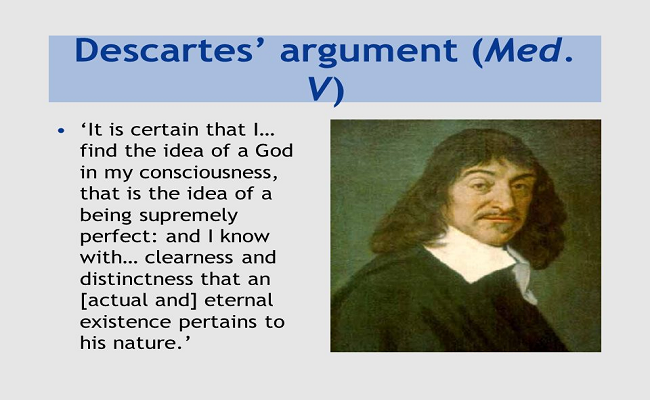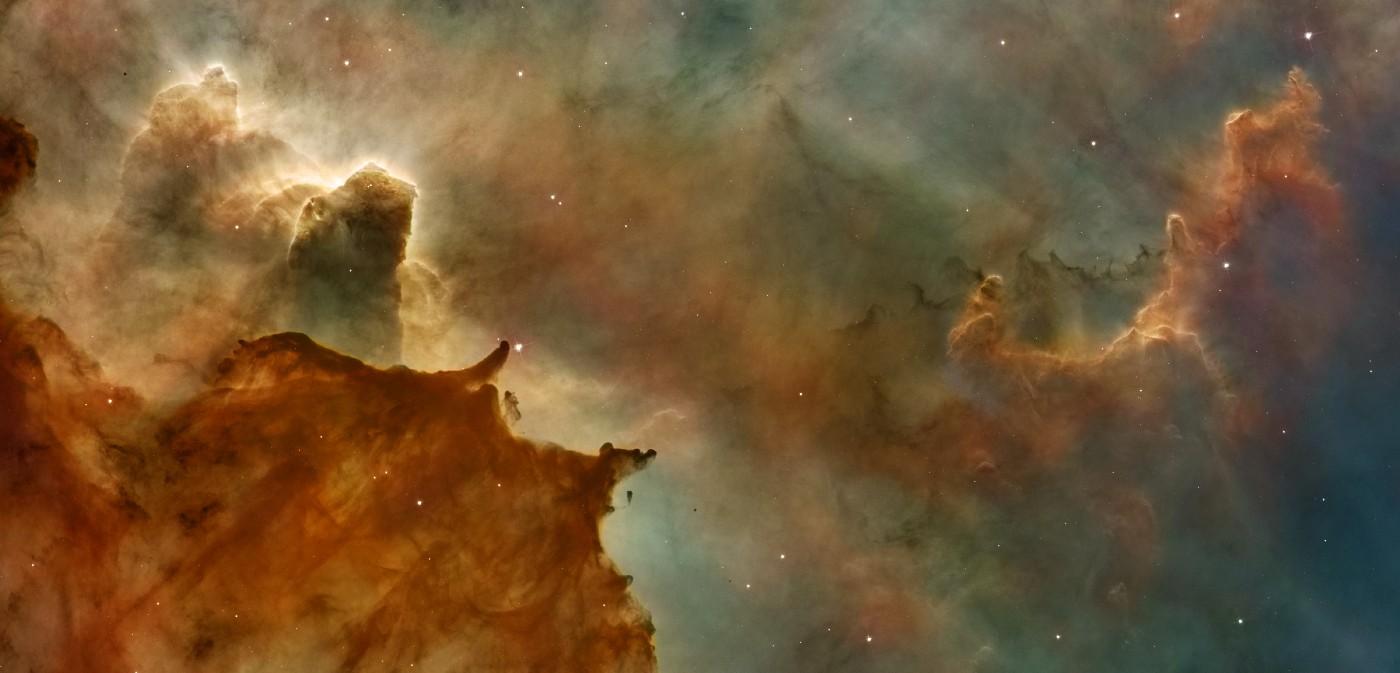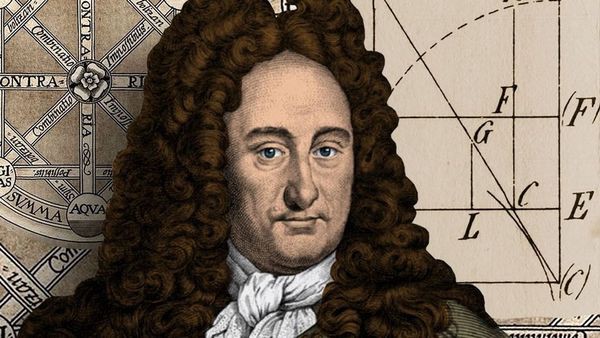By Penny Theodorakopoulou,
The existence of God is undoubtedly one of the biggest questions that have concerned several fields of studies since ancient times. From the science of theology to philosophy, various fields of studies and sciences have their own opinion, which they substantiate mainly using logic. “How can there be God, since we have not proved that he exists as a being, with body and soul?” Formal sciences question the aforementioned question, keeping a fairly logical rationale. In G. W. Leibniz’s case, and specifically in the work Monadology (1714), logic is the only tool needed to prove that God not only exists but is also the supreme being.
So, in today’s article, we will analyze thoroughly the existence of God, according to Leibniz, with two arguments: the ontological and the cosmological (or contingency) argument, as well as we will proceed with will documenting Leibniz’s view of God as the primary Monad, as the “Monad of Monads”.
Leibniz’s ontological argument
Descartes, one of the philosophers by whom Leibniz was influenced to a considerable extent, attempts the following reasoning in regards to proving God’s existence:
Premise 1: God is a being who has all perfections.
Premise 2: Existence is perfection.
Conclusion: God exists.

As much as Leibniz was a supporter of Descartes, he himself formulated his own opinion regarding the above reasoning of Descartes. He argues that a being/an entity needs to show that it is possible for that being itself to exist, that it is possible for all perfections to coexist in one and only being; and if this is true, then and only then is it true “that an absolutely perfect being exists” (quod ens perfectissimum existit). In order to further support his point, he defines ‘perfection’ as a “mere quality which is positive and absolute, or, which manifests itself without any limit in whatever it actually manifests”. Having said that, Leibniz can now confidently say, according to him, that there can be no inconsistency, no contradiction between perfections, since perfection, being simple and positive, cannot be analyzed and limited to limits. This is true, if A and B are both perfections, then the proposition “A and B are incompatible” cannot be based on anything, because A and B are hypotheses. Therefore, it is possible that all perfections are essentially compatible. Therefore, God, being ens perfectissimum, is also possible.
Nevertheless, Leibniz’s reasoning does not seem to bear fruit. We cannot be sure that because God’s existence is possible, then God exists. In this case, Leibniz is forced to prove that existence itself is perfection in itself, in order to be able to say that a being, which has all perfections, can exist. To be more specific, Leibniz must prove that there is a necessary existence within the essence of God. He begins his reasoning by saying:
“Again, a necessary being is the same as a being from which the essence of existence follows. Because a necessary being is the one that can exist in a necessary way so that [a necessary being] not existing would entail a contradiction, and so would conflict with its meaning or essence being of this”.

To clear the blurry image that might have occurred: suffice it to say that a necessary being is the same thing as a being whose existence follows its own essence; then existence must be, in truth, one of its important properties. At this point, Leibniz makes the following reasoning with the following clauses:
Premise 1: God is a being who has all perfections.
Premise 2: Perfection is a simple and absolute property.
Conclusion: Existence is perfection (similar reasoning to Descartes).
Having this, he proceeds to the following reasoning:
Premise 1: If existence is part of the essence of a thing, then it is a necessary being.
Premise 2: If it is not possible for a necessary being to exist, then that necessary being does not exist.
Premise 3: It is possible for a being to have all perfections.
Conclusion: Therefore, a necessary being (God) does exist.
With the above considerations, he proves, according to him, the fact that God exists; and that concludes the ontological argument about proof of God’s existence.

Leibniz’s contingency argument
Leibniz, in order to prove that God exists, brings to the forefront two principles of reasoning, the principle of contradiction and the principle of sufficient reason. The principle of contradiction, on one hand, is “materialized” by contradiction, as its name says. According to that, “we judge false what contains a contradiction and true what is opposite or contradictory to what is false”, says Leibniz in Monadology. If, for instance, a person claims that 1+1=3, all of us will say that this mathematical proposition is false because we know that 1+1=2 and not 1+1=3. This mathematical proposition is a truth that, as we will see below, is a tautology, is sufficient to exist, and does not need any proof (autonomous explanation). On the contrary, the principle of sufficient reason asserts that no event or statement can be true or exist without some sufficient explanatory reason, according to which it exists. There is, therefore, a reason why a thing is as it is and not otherwise.
The principle of sufficient reason, which Leibniz will rely on to prove that God exists, is divided into two types of explanations: autonomous explanations (mathematical propositions, tautologies, etc., e.g. 1+1=2) and external explanations (facts, living things, etc., e.g. why do people exist? This cannot be explained by itself, because the causes and explanations of this question are not within the question itself, as in the case of mathematical propositions. Another cause is responsible for the existence of humans on Earth, see Darwin’s theory).
In the flow of speech, Leibniz continues by presenting the two kinds of truths, the truths of reasoning and the truths of the thing. Truths of reasoning are necessary and their opposite is impossible, whereas, in order to find the reason for its existence, we must analyze it into ideas and simple truths, until we “reach” the primary truths. Simple ideas cannot be defined, for they are self-evident and do not need individual analysis (1=1). On the other hand, truths of the thing are contingent and their opposite is possible. Based on this, Leibniz adds that sufficient reason must exist in the truths of the thing (contingent truths) for the reason that, since their opposite is possible, we are able to analyze it to exhaustion, and yet we will not we have analyzed in full extent.

Having set the stage for the proof of God’s existence, Leibniz begins his proof as such: firstly, he emphasizes that [the principle of] sufficient reason must lie outside the sequence of contingencies, even if it is infinite. He adds that the sufficient reason, or, as he calls it, the final reason, must exist within a substance, which will explain itself. Let us take the universe, for example. We should not only consider the universe, but also the entire totality of the universe. So, supposing that the universe consists of space, time, matter, energy, and laws of nature. In the case where we are talking about an external explanation, if it is outside the universe, then there is another cause, which will not have shape, matter, and time (x). Since x needs explanation, an x(2) appears in order to explain x. Since x(2) also requires an explanation, an x(3) is necessary to explain x(2), continuing the vicious cycle until x(∞). But should there not be another x(∞+1) to explain x(∞)? We must, in other words, find this entity, to be precise, which will be self-explanatory, and autonomous. Let us call this autonomous being y. In turn, y must be free of space, time, and matter, as well as self-explanatory. Leibniz thus advocates that this y is God and only him, for the sole reason that he is sufficient. Dr. William Lane Craig simplifies Leibniz’s reasoning into three propositions:
Clause 1: Everything that exists has an explanation of its existence, either in the necessity of its own nature or because of an external cause (autonomous and external explanations).
Clause 2: If the universe has an explanation for its existence, then that explanation is God.
Clause 3: The universe exists.
According to what has been said, Leibniz ultimately proves that God exists.
In the next part, we will contemplate how Leibniz believes that God is the Primary Monad.
References
- Marc Bobro, Kenneth Clatterbaugh, Unpacking the Monad: Leibniz’s Theory of Causality, in The Monist, Vol. 79, No. 3, Causality Before Hume, 1996, pp. 408-425, jstor.org, Available here
- Leibniz’s Argument for the Existence of God? (William Lane Craig), youtube.com, Available for watching here
- The Cosmological Argument, youtube.com, Available for watching here
- Leibniz, G. W. (1902). Discourse on Metaphysics, Correspondence with Arnauld and Monadology. (T. J. McCormack, Ed.) New York, United States of America: 1873 Press.
- Leibniz, G. W. (1992). Discourse on Metaphysics and The Monadology. (G. R. Montgomery, Trans.) Amherst, United States of America: Prometheus Books.
- Leibniz, G. W. (1997). La Monadologie – Η Μοναδολογία. (Σ. Λαζαρίδης, Trans.) Υπέριων – Φιλοσοφία.
- Philosophy, S. E. (2007, December 22). Gottfried Wilhelm Leibniz: The Existence of God (The Ontological Argument, The Comsological Argument).
- Lenzen, W. (2017, March 1). Leibniz’s Ontological Proof of the Existence of God and the Problem of “Impossible Objects”. SpringerLink. doi:10.1007/s11787-017-0159-2




